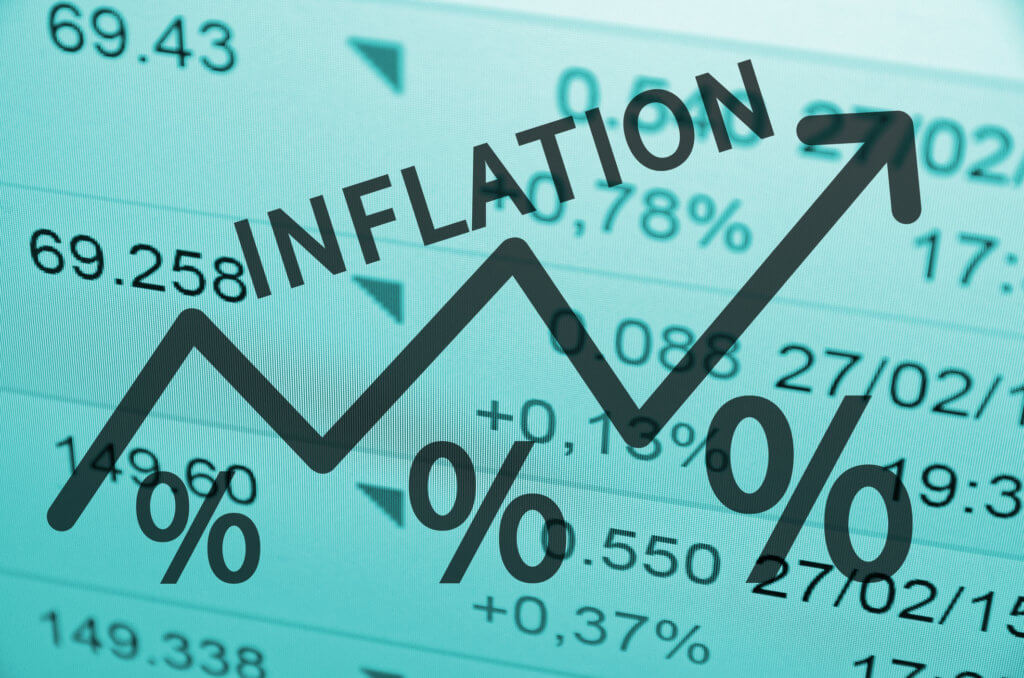What is the effect of INFLATION on your investment? – by Syed Nishat

What is the effect of INFLATION on your investment? – by Syed Nishat
As the world re-opens and businesses get moving again, people have become concerned about a rise in inflation affecting the cost of the things they purchase for everyday needs, including homes, rent, vehicles, groceries, and appliances. There is an expectation of a rising inflation rate over the next couple of years, and this is not only a concern in the goods and services sectors. Inflation also has an effect on the stock market, and it may particularly affect portfolios for those who are looking for fixed income or are close to retirement. So how can investors protect their portfolios against inflation?
First of all, what is inflation?
The basic concept is a rise in prices without a corresponding rise in purchasing power. The rising prices may be due to a higher cost of materials needed for production or a sudden high demand for something, and the result is that the amount of money required to purchase an item is no longer enough—without a raise in consumer earnings, the higher price of things will limit purchasing. This is measured by several indicators, the most widely used being the CPI, or the Consumer Price Index. CPI includes compiled data for the prices of various goods, such as cars, education, and other items that are constantly needed by our society; by tracking these prices over time, the CPI can indicate how much inflation has occurred. For example, the CPI increased 0.8% in April 2021 after rising 0.6% in March. Comparing this to 2020, the full increase was 4.2% over twelve months, the largest single year increase since September 2008.
How does this affect investments?
While it seems that inflation most directly has to do with the price of consumer goods, it can have an effect on an investment portfolio as well. Any assets focused on fixed, long-term cash flows tend to underperform with rising inflation, as the strength of the future cash flows suffers along with any decreased purchasing power in the rest of the economy. Inflationary prices can also mean overstated financials for companies, meaning overvaluation and higher prices for stocks themselves. In these cases, the eventual decline of inflation also means the inflated numbers go down, affecting value in the other direction, muddying the picture when trying to identify the true value of a stock.
What are some ways to hedge against inflation in a portfolio?
With the reduction in purchasing power, an investor with more cash or cash equivalents will have the same trouble with inflation that the rest of the economy will have. While there is no way to guard against all losses, diversifying into products that have historically performed better during times of inflation may offer some protection.
Real Assets:
Real assets, such as commodities or real estate, tend to hold up better with rising inflation rates. Commodities pricing tends to rise with inflation, so an investment there may be advantageous. In times of higher rental costs, real estate returns may be higher and more consistent.
Financial Sectors and TIPS :
Banks should benefit from higher interest rate and improved capital positions as the economy recovers. Treasury Inflation Protected Securities (TIPS) may also perform well in high-inflation situation compared to traditional bonds.
Less Exposure in Bonds:
On the other side, it may be best to make sure there is less exposure to bonds, as they are fixed-income instruments. Inflation can also wreak havoc on funds held in savings accounts for those who are in the post-earnings stage of their lives; while earnings for workers are meant to keep pace with inflation, savings are subject to the reduction in purchasing power, so those who are living off those savings will not be able to buy as much with the same amount as they could before the inflationary increase.
In summary, inflation cannot be controlled or completely protected against, as it affects many aspects of an investor’s life, from filling a car tank with gas to stock values within their investment portfolios. However, there are strategies that an investor can use to mitigate the potential pitfalls of inflation with the guidance of a financial advisor. To plan for the possibility of a steep inflation, speak with an experienced financial advisor will be able to consider the investor’s unique circumstances and work to provide a viable strategy to best protect assets.
Securities are offered through Securities America, Inc., member FINRA/SIPC. Advisory services offered through Securities America Advisors, Inc. Wall Street Alliance Group and Securities America are separate companies. You should continue to rely on confirmations and statements received from the custodian(s) of your assets. Securities America and its representatives do not provide tax or legal advice; therefore, it is important to coordinate with your tax or legal advisor regarding your specific situation.
Syed Nishat is a partner, Wall Street Alliance Group. He can be reached on LinkedIn and on Twitter @syedmnishat. He holds the FINRA Series 7, FINRA Series 63, and FINRA Series 66 licenses, along with licenses for life, disability, and long-term care insurance.

